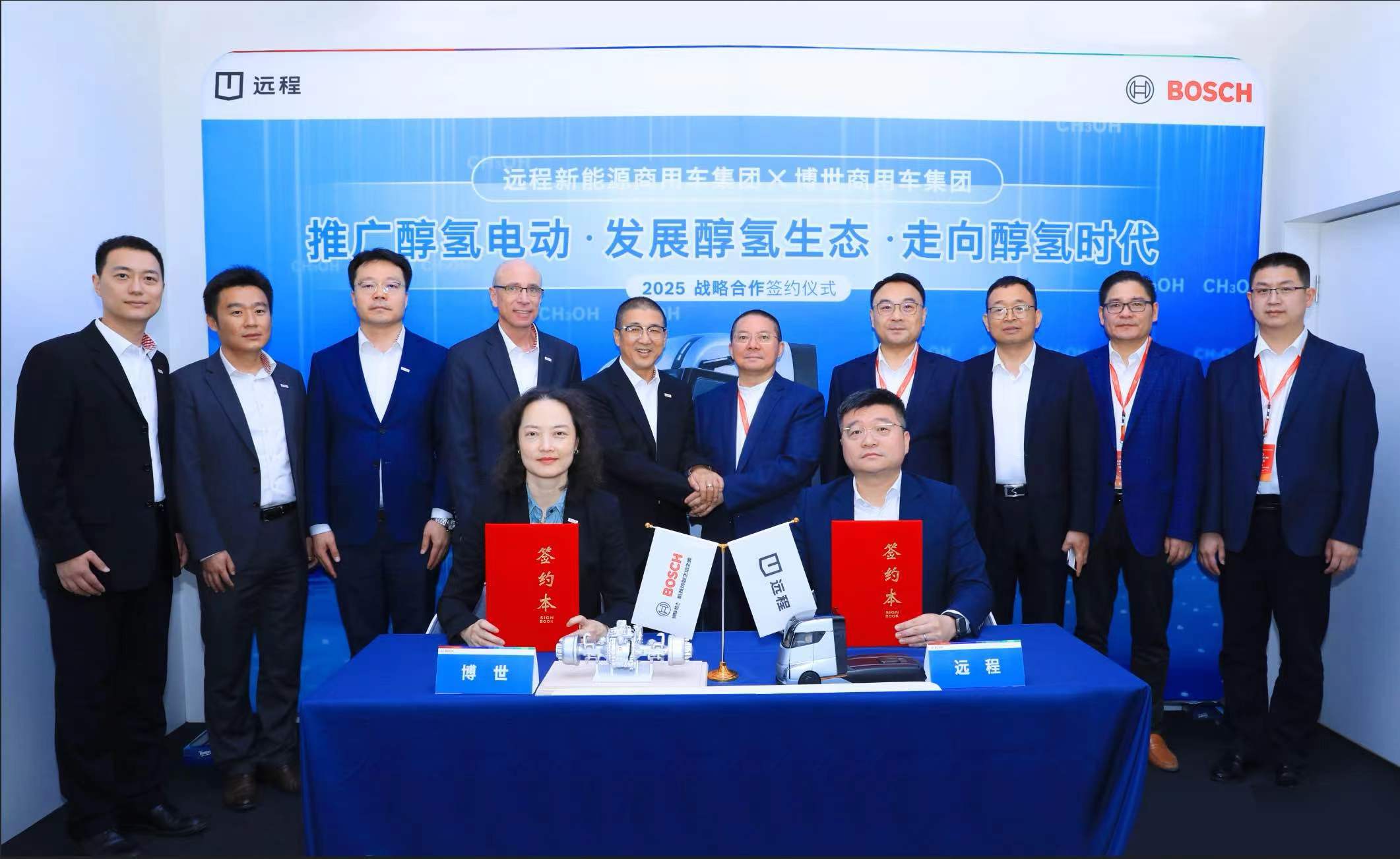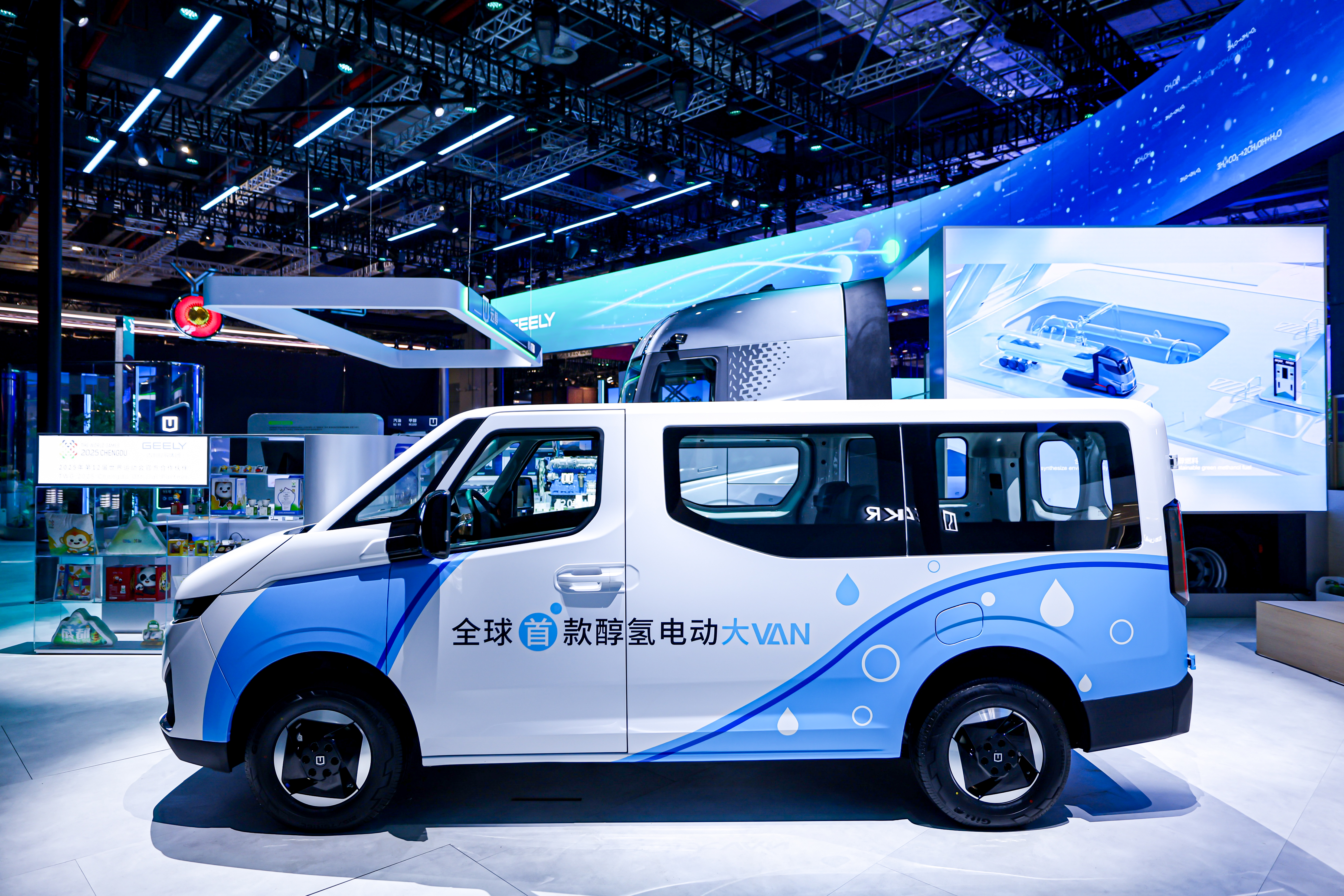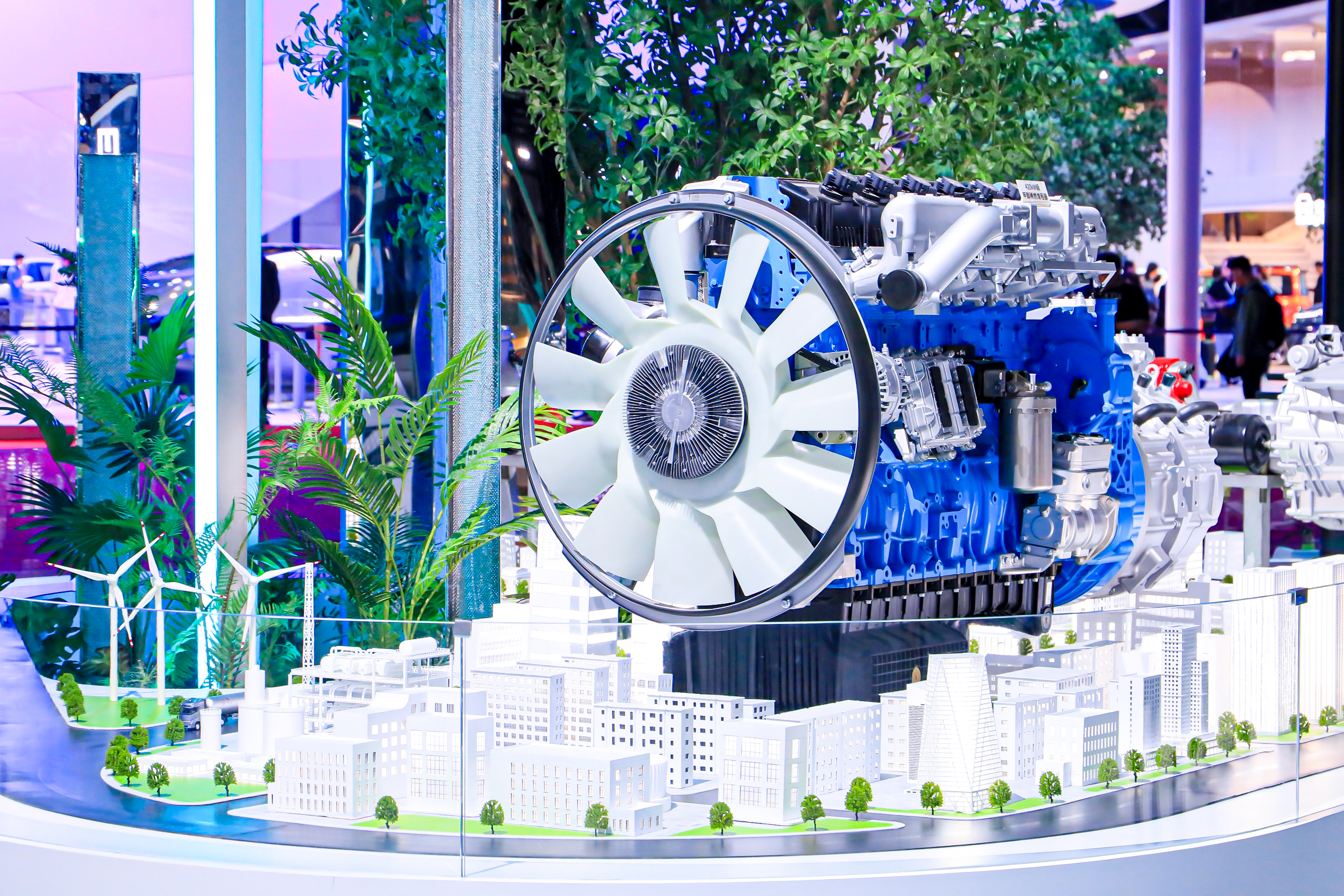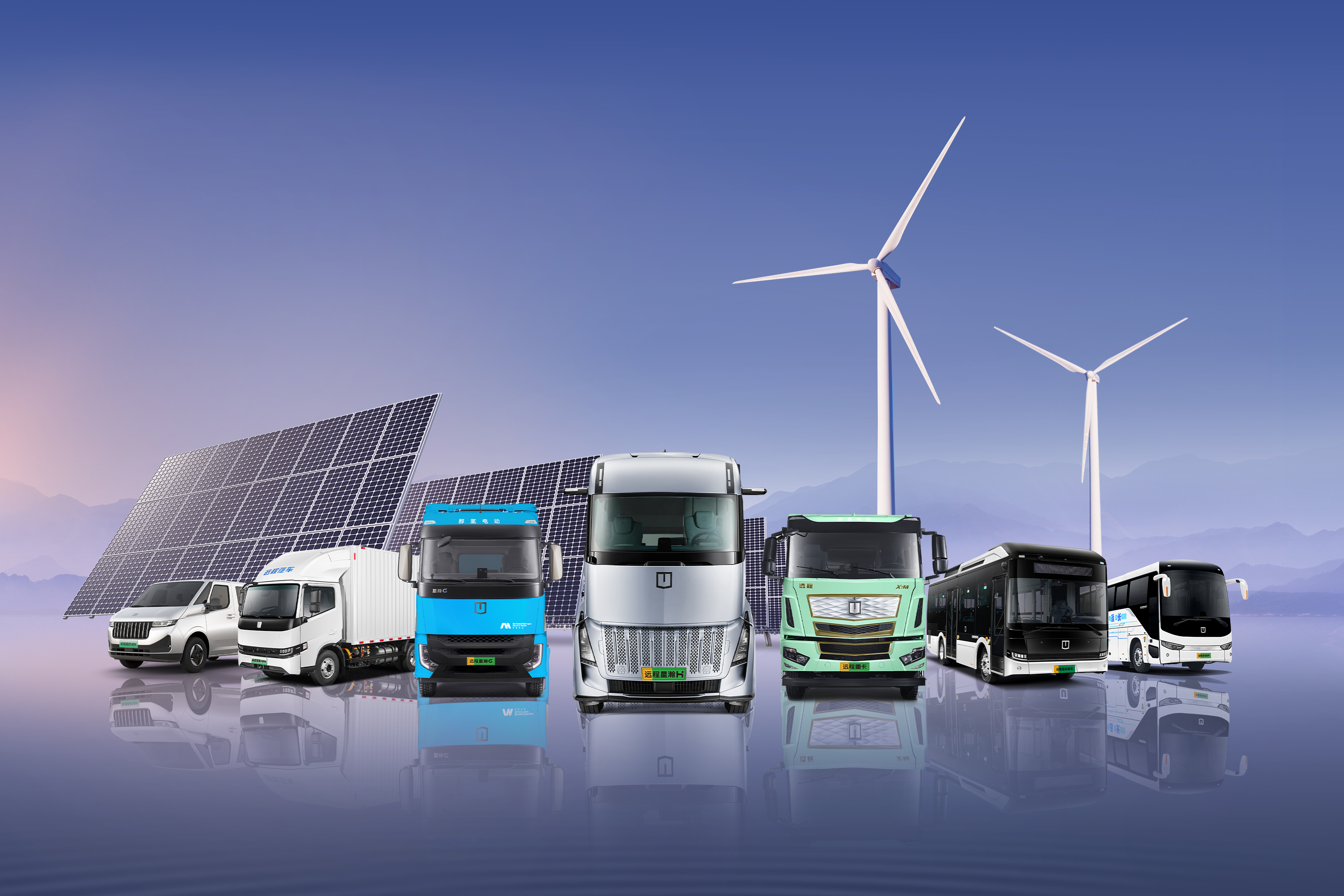
On April 25, at the Shanghai Auto Show, Yuancheng New Energy Commercial Vehicle Group and Bosch Commercial Vehicle Group formally signed a strategic cooperation agreement. The two parties will carry out in-depth cooperation around the research and development of alcohol-hydrogen electric technology, core system integration and global market layout. The formation of this industry alliance across the upstream and downstream of the supply chain not only marks that the methanol technology route has been recognized by the world's top supply chain system, but also indicates that the methanol economic revolution with China as the core driving force is breaking through the critical point.

This cooperation is not a simple technical alliance, but a deep integration of Yuancheng's alcohol-hydrogen electric technology system with Bosch's full range of commercial vehicle solutions to jointly develop a complete ecosystem covering "clean energy development, alcohol-hydrogen electric technology innovation, and full-platform vehicle adaptation." It also indicates that the alcohol-hydrogen electric industry ecosystem that Yuancheng is committed to building has further been recognized by the industry's leading players.
Strategic breakthrough of methanol economy: from energy security to carbon neutrality mission
This year's Shanghai Auto Show saw the first appearance of a new generation of electric vehicles - alcohol-hydrogen electric models. Under the spotlight of the alcohol-hydrogen oasis, Yuancheng not only displayed the world's first alcohol-hydrogen electric large VAN - Yuancheng alcohol-hydrogen electric super VAN and the flagship model - Yuancheng Xinghan H alcohol-hydrogen electric heavy truck, but also announced the arrival of the "oil-to-alcohol" era in the commercial vehicle field with a three-in-one ecological closed loop of preparation-filling-vehicle application. This technological innovation, which started in the laboratory and was achieved in industrialization, is reshaping the transportation energy landscape and providing a sustainable carbon neutrality path for China and the world.

While the global automotive industry is wavering between pure electric and hydrogen energy technology routes, Yuancheng Commercial Vehicles has chosen a more Chinese-style energy transformation path - methanol-hydrogen-electric. This choice is not accidental, but based on a deep insight into the current energy situation. China's energy structure of "rich in coal, little gas, and poor in oil" determines that energy transformation must take into account safety, economy, and sustainability. Methanol, a liquid energy known as the "future fuel" in the industry, happens to be the key to solving this problem.
The methanol production process itself is a resource revolution. Hydrogen is produced by electrolyzing water with wind power and photovoltaic power, and then methanol is synthesized by combining carbon dioxide in industrial exhaust gas, which not only realizes the storage of renewable energy, but also completes the recycling of carbon resources. The conversion efficiency of this "liquid sunlight" far exceeds that of battery energy storage. Its technical feasibility has been proven to the outside world at the historic moment of lighting the main torch of the Hangzhou Asian Games.
At the policy level, China's support for the methanol economy is taking shape in a systematic layout. From the methanol vehicle pilot project led by the Ministry of Industry and Information Technology in 2012, to the 2024 "Action Plan for High-Quality Development of New Energy Storage Manufacturing Industry (Draft for Comments)" which explicitly supports the green methanol industry chain, to the intensive release of more than 50 policy documents supporting the promotion of alcohol-hydrogen vehicles at dozens of provincial and municipal levels, the methanol industry has institutional guarantees for large-scale development.
Technological revolution: Alcohol-hydrogen electric vehicles redefine the value system of commercial vehicles
The alcohol-hydrogen electric family launched by Yuancheng Commercial Vehicle at the Shanghai Auto Show is the epitome of the evolution of commercial vehicle technology. Its core technological breakthroughs are rewriting the value system of new energy commercial vehicles.

Alcohol-hydrogen electric vehicles combine methanol with electric drive. On the basis of electrification, methanol fuel and methanol engine are used as energy storage and conversion units, giving full play to the advantages of methanol liquid energy such as high energy density, convenient energy replenishment, safety and reliability. It is an ideal configuration for new energy vehicles. Compared with fuel vehicles and natural gas vehicles, alcohol-hydrogen electric vehicles are cleaner; compared with pure electric vehicles, they are more convenient, economical and practical.
In China, although commercial vehicles account for a small proportion of all vehicles, they consume more than half of the gasoline and diesel used in vehicles, and emit 56% of carbon dioxide and 80% of PM pollutants from all vehicles. It can be said that applying alcohol-hydrogen electric technology to the field of commercial vehicles will not only help achieve the "dual carbon" goals in the transportation field, but will also effectively ensure national energy security.
Bosch has been deeply involved in the field of commercial vehicles in China for more than 20 years and has witnessed the new energy transformation and development of Chinese commercial vehicles. Through insights into industry trends, Bosch released the white paper "Prospects for the Application of Green Methanol in the Transportation Sector under the Dual Carbon Goals" this year, which clearly mentioned that green methanol is an effective way for the highly competitive transportation industry to achieve carbon neutrality. On the technology research and development side, Bosch already has a diversified technology matrix in the field of alternative fuels including methanol, and promotes the efficient and environmentally friendly application of alternative fuels in the field of commercial vehicles through software and hardware.

As early as 2022, the two sides' project cooperation on alcohol-hydrogen electric vehicles has been implemented. This time, the cooperation relationship between the two sides has been upgraded from a single project cooperation to an all-round strategic partnership, which will further enhance the market competitiveness of Yuancheng's alcohol-hydrogen electric products. At present, Yuancheng's alcohol-hydrogen electric system installed in batches can generate more than 2 kWh of electricity per liter of methanol, and the electricity price can be converted to less than 1 yuan/kWh, which reduces the cost by 32%-52% compared with fuel vehicles. We have reason to believe that with the continuous deepening of cooperation between the two sides, the greater potential of alcohol-hydrogen electric technology will continue to be stimulated, creating more value for products, users and even the industry.
Ecological closed loop: from single point breakthrough to industrial reconstruction
As a pioneer, Yuancheng Commercial Vehicle's layout of the methanol economy goes beyond the technological innovation of a single vehicle model, and instead builds a complete ecological system covering preparation, refueling and application.
For example, the 500,000-ton green methanol demonstration project being built in Alxa is converting the abundant wind and solar power resources in desert areas into liquid fuel. The project will reduce carbon emissions by 750,000 tons per year after reaching full production. This "wind, solar, and alcohol storage" cycle model not only solves the intermittent problem of renewable energy, but also provides a sustainable energy supply for the methanol economy. According to industry forecasts, with the continuous development of preparation technology, the energy cost of green methanol will also decline. This means that the remote alcohol-hydrogen ecosystem, which has already mastered the core technology and key resources for the preparation of green alcohol, will further enhance its advantages on the energy side.
Yuancheng's "Yuanchun" refueling brand adopts the "three guarantees" service model (guaranteeing the price, quality and supply of methanol), and has built more than 600 refueling stations across the country. By upgrading existing gas stations, the cost of renovating methanol refueling stations is only 100,000 yuan, which is much lower than charging stations and hydrogen stations of the same scale, and existing gas station facilities can be reused. Therefore, PetroChina and Sinopec have also successively cooperated with Yuancheng to jointly build methanol refueling infrastructure. It is estimated that by 2027, 4,000 methanol refueling stations will be built across the country, forming an energy replenishment network covering major logistics trunk lines.
at last
At the 2025 Shanghai Auto Show, Yuancheng and Bosch jointly outlined not only a technology roadmap, but also a new energy world with methanol as the link. When liquid sunlight shuttles across the Silk Road Economic Belt and green methanol filling stations light up the longitude and latitude of the earth, this energy revolution that began in China is promoting the commercial vehicle industry from "low carbon" to "zero carbon" through the three-dimensional linkage of technological innovation, ecological construction and policy support.
Methanol, a once neglected liquid energy, is being reborn under the drive of long-distance commercial vehicles. It is not only a strategic weight for China's energy security, but also a technical benchmark for global carbon neutrality. When green methanol filling stations are springing up on logistics trunk lines, and when methanol-hydrogen electric heavy trucks shuttle between plateaus and plains, a new era of transportation powered by liquid sunlight has arrived.